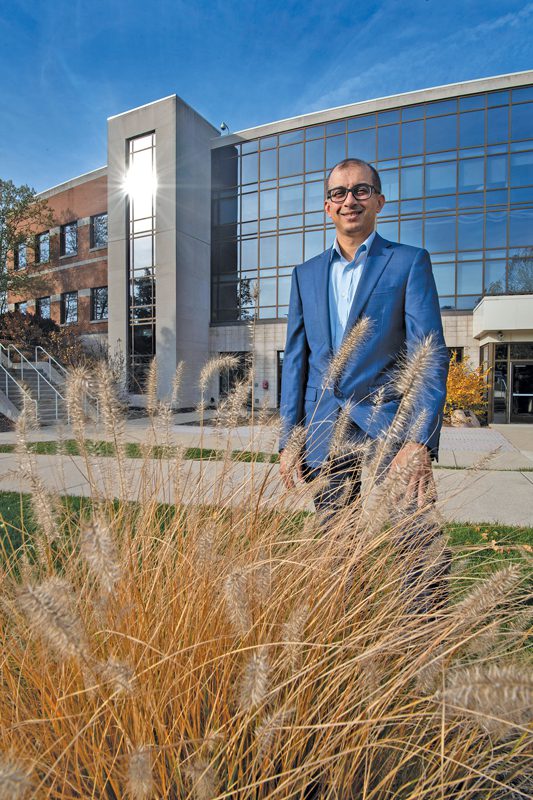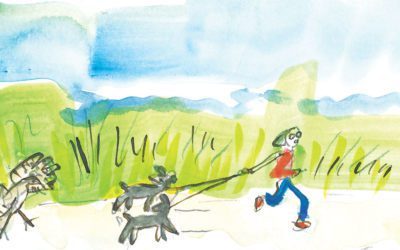
While there have been multiple studies on psilocybin and its impact on mental illnesses, Hosanagar says, this one stands out because it is “double blinded”: neither patients or physicians “know what the subject is getting.” | Photo by Mark Bialek
In 2020, Ann Arbor became one of the first cities in the country to decriminalize the sale of “magic mushrooms.” Now Hosanagar is coinvestigator on a study of psilocybin, the fungus’s psychoactive ingredient, for treatment-resistant depression.
Planning began two years ago. “We had a study looking at the use of psilocybin in the treatment of fibromyalgia that was carried out through the Center for Chronic Pain & Fatigue Research Center” and the Department of Anesthesiology, Hosanagar explains. “We had some experience with psilocybin studies, and therefore we continued with that path.”
The study enrolled its first patient in January. For up to sixty-two weeks, each subject will receive psychotherapy plus either a placebo or one of three doses of COMP360, a synthetic form of psilocybin produced by biotechnology company Compass Pathways.
While there have been multiple studies on psilocybin and its impact on mental illnesses, Hosanagar says, this one stands out because it is “double blinded.” Since “patients and the physicians don’t know what the subject is getting,” there’s less chance of bias. It’s considered the gold standard for research trials.
According to a 2022 New York Times article based on a paper in Nature Medicine, a British trial found “rapid and sustained improvement in [patients’] depression, and [functional MRI] scans showed flourishes of neural activity across large swaths of the brain that persisted for the three weeks.”
“Psilocybin, it would seem, allows you to see things in an entirely new light, particularly when you have a psychotherapist who can help guide you through that experience,” lead author Richard Dawes told the Times. “You can unpack difficult experiences that might define how you see the world, which is interesting because that’s exactly what traditional cognitive behavioral therapy is trying to do.”
Related: Listening to Ketamine
Hosanagar says his group has worked on one subject thus far and the study could continue until late 2025. Despite its local legalization, however, he warns people not to use psilocybin unsupervised: “People benefit from it, but we don’t know who benefits and how much. That psychological state can be distressing. So, we don’t know who or which individuals will necessarily have a more distressing experience compared to the other. And that is the part we’re still trying to figure out and understand.”
Though the city won’t arrest anyone for using or selling it, the federal Controlled Substances Act still lists psilocybin on Schedule I, for substances with the greatest potential for abuse. Before it could be widely prescribed by physicians, it would need to be rescheduled—something that could happen if studies at the U-M and elsewhere continue to find it effective.
In the current study, “the biggest question for us is trying to understand the durability of the treatment,” Hosanagar says. “Can two doses take care of someone’s depression for three months? Six months? And if so, who are those people who will benefit from them?”



